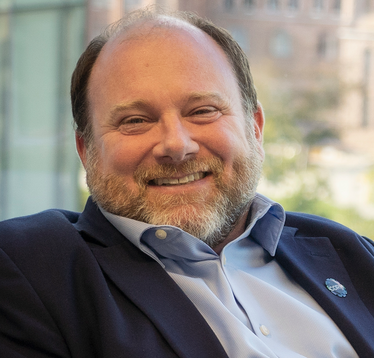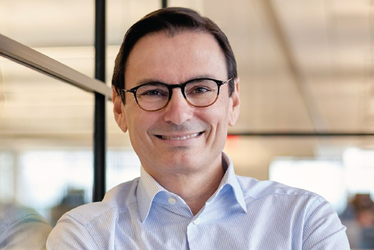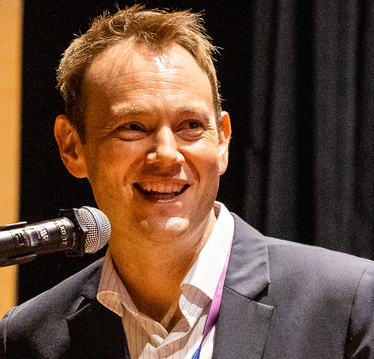
Future Pharma
Ever wondered what the distant future of pharma and healthcare looks like? A group of industry experts offer their sage predictions.
Rob Coker | | 4 min read | Discussion
Whether because of impatience or dissatisfaction with contemporary circumstances or seeking hope in posterity, everyone has pondered, speculated, or dreamed of how the world will look and function beyond their lifetimes. Using the socio-technological situation and developments of their own time as auguries, the predictions of some profound thinkers have proven somewhat accurate. Nineteenth Century British Scientist and Author HG Wells, for example, envisioned a man-made vehicle capable of flight in his 1895 short story “The Argonauts of the Air” a decade before Wilbur and Orville Wright’s first major successful flight with the Wright Flyer III.
From (dangerously indiscriminate) blood transfusions in Bram Stoker’s “Dracula” (1897) and video communication and diagnosis in EM Forster's “The Machine Stops” (1909), to automated drug delivery in Katherine MacLean’s “Contagion” (1950) and artificial organ manufacturing in Karel Capek’s “R.U.R” (1920), the life sciences are prominent in classical science fiction, but most of the visions of futurity since the days of Wells are more a product of fiction than science.
As we still await the flying cars and lunar day trips we were promised as children (and as I will sadly never get to ask Wells what he thinks of today’s advances), l took the opportunity to ask the scientists I do have access to what they think the future of medicine looks like. AI is a key theme here. But people also have views on smart lavatories and internal “micropharmacies.” Read on…

Beatrice Setnik, Chief Scientific Officer, Altasciences: “If I could predict a potential development in AI, it would be to aid in the diagnostics and customization of medicine to the individual patient. If you could input environmental and genetic aspects of a patient, determining root causes of disease would aid tremendously in both treatment and preventative measures. Having the ability to detect subtle imbalances early and correct these before diseases set in would be the ideal of true preventative medicine.”

Michael May, CEO and President, Centre for Commercialization of Regenerative Medicine: “Nobody does toilets like the Japanese. My prediction is that we will expand on the Japanese concept of a toilet and make our morning duty a pillar of personalized healthcare. The toilet of the future will analyze the composition of our waste and other parameters through transdermal biosensors to combine this data with measurements of blood pressure, weight, EKGs, temperature, respiration, and weight (and who knows what else?) to generate a daily health score that will be analyzed by AI and your physician. The toilet will then recommend a genetically engineered yogurt, exercise regimen, treatments, or prophylactic interventions. It will also detect serious illnesses or chronic disease, building the dataset required for personalized, advanced cell and gene medicines.”

Raquel Izumi, Chief Operations Officer, President, and Founder, Vincerx Pharma: “I think at some point, we are all going to have our genomes sequenced. And given the advances in AI technology, there will be predictive algorithms on which diseases we are predisposed to. With that information will come recommendations (for example, lifestyle changes and/or prophylaxis medication) to help reduce the risk of developing those diseases.”

Fabrice Chouraqui, CEO, Cellarity: “With the impact that AI and ML are having on our industry, I can see a future in which most drug candidates will be successful and where the significant cost savings generated as a result will significantly decrease the price of medicine and make innovation accessible to everyone across the world. Imagine what that could do for a patient living with a debilitating disease – and the impact that could have on that patient’s loved ones.”

Akintunde “Tunde” Bello, Senior Vice President, Head of Clinical Pharmacology, Pharmacometrics, and Bioanalysis, Bristol Myers Squibb: “In the future, I would like to see a holistic patient care model that seamlessly integrates advances in health record management, diagnostic screening, and multi-modal treatment technologies. This would involve next generation multiplex screening assays, advanced imaging, and AI informed personalized treatment plans. This could then be linked with onsite drug manufacture at the clinic through 3D printing.”

Jane Osbourn, Chief Scientific Officer, Alchemab Therapeutics: “The pharma industry will evolve its focus to study wellness rather than illness. Every individual will have their health status continually monitored using digital technologies and their data stored in a personal cloud which will alert them and their health care professional when action needs to be taken. The data will be integrated across large cohorts of individuals to provide increasingly accurate insights into continued wellness. Disease prevention will be valued as much as treatment.”

Piers Ingram, CEO, Hummingbird Bioscience: “Naturally, I hope this isn’t really a ‘far-flung’ aspiration, but making cancer a chronic disease where we are either able to offer effective cures for patients or, at the very least, provide a deep bench of safe and effective treatments. If patients do not progress on Therapy A, we have great options in B, C, D... and so on, such that we can ensure that patients continue to enjoy an otherwise healthy lifespan.”

Phil Vanek, CTO and Partner, Gamma Biosciences: “Someday, we’ll have adaptive augmented reality combined with interventional therapeutic technologies that will continuously survey our surroundings for infectious agents or potentially harmful exposures, monitor our vitals, and deliver therapeutic modulators produced in implanted “micropharmacies” within our bodies. With our complete knowledge of biology, neural networks, and predictive analytics and AI, we’ll be able to respond and intervene immediately and write therapeutic instructions to the genome or epigenome to create de novo therapies in real-time. We’ll be able to write and execute biological instructions as easily as we reprogram computers today.”
Do you want to share your vision of the future? Consider the prompt,“Make a prediction for the far flung future of the industry that may seem like science fiction but could one day be a reality” and drop me an email: [email protected]
Following a Bachelor’s degree in English Literature and a Master’s in Creative Writing, I entered the world of publishing as a proofreader, working my way up to editor. The career so far has taken me to some amazing places, and I’m excited to see where I can go with Texere and The Medicine Maker.



















